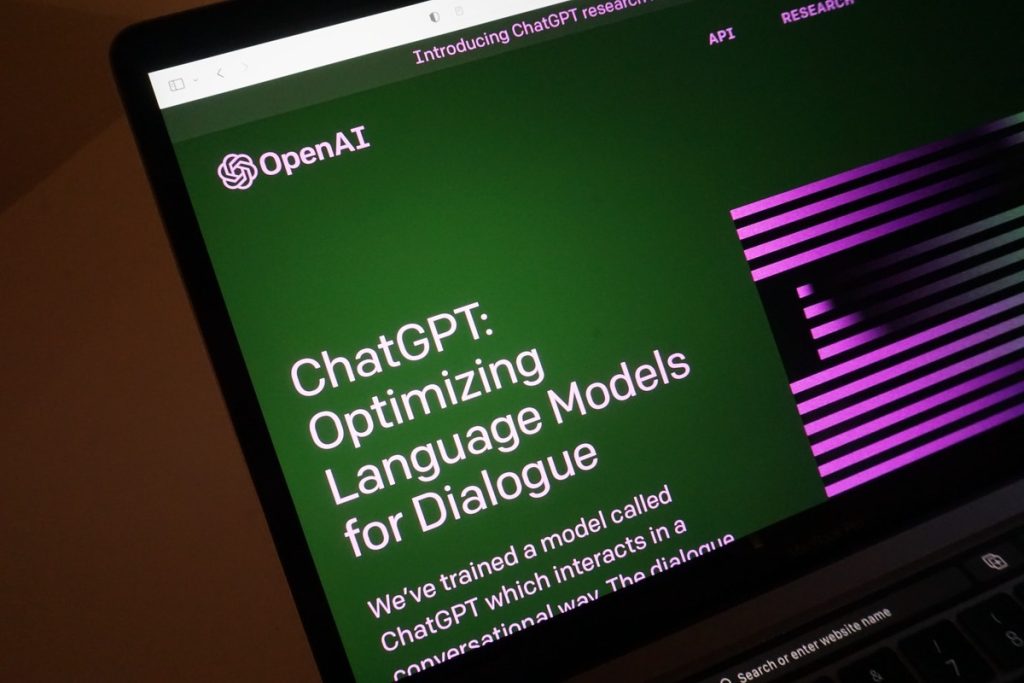Should I Be Worried About AI Taking Over My Job?

With AIs on the rise, ChatGPT, Bing Chat and now Google Bard, it’s time to answer the most important question we anticipate you asking: will AI take my job?
The AI and digital automation revolution has been something that has been discussed for a while now, across many different platforms like Forbes, the McKinsey Institute and other tech sites and mainstream news. However, not everyone is telling the same story of what exactly we should expect, even among experts.
Experts that say “Yes”
There are two theories in this space:
- AI will take some jobs away from humans but also create some new ones
- AI will cut out some repetitive, monotonous tasks within our jobs and allow us to be more efficient in them
The McKinsey Institute 2017 report, Jobs lost, Jobs gained: What the future of work will mean for jobs, skills and wages rocked the business world and remained one of the most sourced studies for AI’s potential impact on the workforce.
Primarily when it came to the prediction from the research, that 30% of activities across 60% of occupations can be automated.
As a consequence, many tasks or responsibilities within jobs may be automated in future—and no matter if you are a professional or working in hard labour, learning how to work with these technologies when these advancements happen is important to ensuring your career isn’t displaced or you don’t fall behind in the competition.
The report also reports AI and automation will displace a total of 400 million workers globally between 2016 and 2030. However, it also suggests that AI will create jobs as well—more jobs than it may destroy.
It’s impact will also be targeted towards more jobs and tasks than others:
AI is best able to automate tasks that require
- Physical tasks in stable, predictable settings
- Data collection and processing
AI is less able to affect tasks that require
- Managing people
- Providing expertise
- Interacting with stakeholders
- Care and empathy
In a more recent report by McKinsey, AI use has also more than doubled.
Experts that say “No”
Other thought leaders in this space disagree.
Sean Chou, the former CEO of an AI startup called Catalyic, believes robots are stupid.
“All you have to do is type in ‘Youtube robot fail’,” Chou told the Built In.
This isn’t to say that AI and automation don’t have enormous capabilities but that rate of their progression and development is overinflated in the media and won’t be replacing swatches of people (if any) anytime soon.
Another discussion point many business leaders bring up that is in the face of an aging population and declining birth rate, where more people die and there’s less young people to support them or replace them at work, AI and automation will help pick up the slack to support the workforce.
AI Outlook for 2023 and Beyond
- ChatGPT-4 has recently become available (March 14) to ChatGPT Plus subscribers
- Bing released their new Bing Chat AI bot on February 7, 2023
- Google is currently working on their own AI chatbot Bard
- Many new AI apps are reaching the app market to help professionals in the real estate and property space: from answering and logging new leads, estimating property costs, and learning customers’ preferences for their homes.
(Please note, while searching for tools, many geographical AI apps for real estate and property management are American based and won’t provide any assistance in Australia.)
The Current AI Trends for 2023:
- Democratisation of AI: With open-source algorithms, more people are creating their own prompts or plugins to integrate with ChatGPT to expand on new functions.
- Regulations on AI: The arrival of AI-generated art and content has shed a big light on the ethical use of AI, and how Governments regulate or limit its use will be another large topic to watch when following the state of AI in future.
In either case, the largest call by those observing these trends in AI is to adapt.
AI today is fundamentally a tool to help make current work more efficient, not another worker (or workers) in the office.
AIs need constant supervision and instruction. They primarily cannot sit in the driver seat and pull from expertise, creativity and empathy that helps guide the direction of work and fills in the gaps of what we as humans expect from professionals when something falls through.
Learning To Work With AI As A Tool

Becoming an early adapter and learning how to use and navigate these tools will place you ahead of the market, as new developments in AI emerge.
There’s a lot of applications that AI can help provide to make white collar work in construction, real estate, property, and design and development easier:
- Evaluate 1000s of documents by homeowners to gain property information
- Streamline communication with tenants and landlord accounting
- Create chatbots and other forms of lead generation
- Use it with access control or smart door cams building security
- Collect data on how occupants best use a building’s space to improve how it’s used and optimise energy efficiency
- Personalise data to be more persuasive with customers
- Create recommendation systems
- Create first drafts for property content marketing
- Set reminders to self manage your productivity
Future Proof Your Career With AI-Proof Skills

If you’re worried for the future, you can also take the time to invest into building up skills that artificial intelligence and automation don’t do so well in.
- Personalised, Empathetic Service – Computers will never be able to replace the personal touch and sense of care that humans naturally impart to each other.
- Local Expertise – Learn more about the locations and areas you work in. While AI content writers like chatGPT currently exist, they can never produce the type of original and unique content that will only come from the creative and informed mind of someone with a rich understanding of the location and buildings they are selling. While AI can help compile important points of data to highlight for buyers, it’s still your personal touch that will set listings apart and make them resonate well.
- Creative Problem Solving – Connecting the dots of data and coming up with new solutions to problems from buyers, sellers or important stakeholders relevant to developing a building will always be an important part of work in construction, real estate and property that will require intrinsically unique human skills that AI or automation can’t replicate. If you know how to analyse situations and think on your feet, you have a strong and bright spot in an AI-adapted future.
If you already have these skills, then it’s even more reason why you can be more certain of your future.
Find AI Resilient Jobs In Construction, Property & Real Estate With Gough Recruitment
Whether you’re starting a new career or are a brand new graduate, Gough Recruitment can help you find the perfect position in some of Australia’s most resilient and adaptive industries.
Contact us to learn more and find your dream job today.